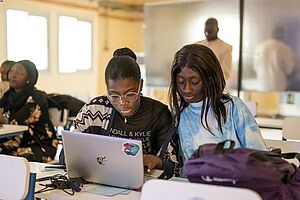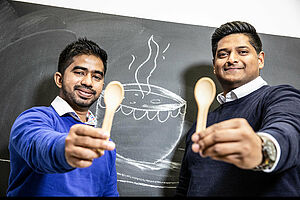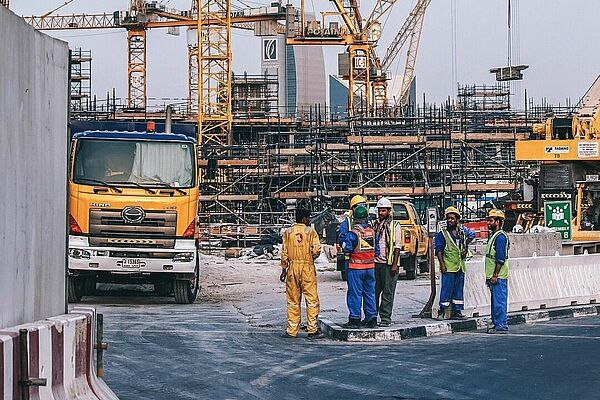Engagement in the Global South pays off in many ways

Business success and sustainable development through economic engagement in the Global South are not mutually exclusive; on the contrary, both goals complement each other. This guiding principle of international development cooperation is also scientifically proven.
According to a study by the University of Göttingen, every euro invested in development cooperation brings an average of 36 cents in economic value back to Germany (source). For Prof. Dr. Stephan Klingebiel, head of the research program “Inter- and Transnational Cooperation” at the German Institute of Development and Sustainability (IDOS), development policy is therefore a strategic instrument for pursuing political, social, and economic interests—whether through easier access to raw materials, the management of migration flows, or a contribution to reducing global CO₂ emissions (source) .
Concrete examples show that this insight is also becoming increasingly prevalent in the German economy: More and more companies are recognizing the potential of global future markets in Africa, Asia, and Latin America—and are taking advantage of funding programs such as develoPPP, which was initiated by the Federal Ministry for Economic Cooperation and Development (BMZ).
Medical technology company B. Braun gets involved in Africa

For example, the Melsungen-based medical technology company B. Braun has been involved in projects in various African countries since 2008 as part of develoPPP. The aim is to build infrastructure, train local specialists in the field of biomedical technology, and improve local healthcare.
“To be economically successful, we need a sustainable structure that benefits both us as a company and the local people,” says Shuang Zhang, Sales Manager for Africa at B. Braun, in an interview with the Agency for Business and Economic Development (AWE).
His colleague, Kerstin Heimel-Ventura, Director of International Development, also draws a positive conclusion: “Our cooperation within the framework of develoPPP has been in place since 2008, when we started with a project in Kenya. Since then, we have repeatedly found that cooperation between the private and public sector makes a lot of sense.”
Technology company FRENVI realises circular economy in India

The Mannheim-based technology company FRENVI shares this experience. FRENVI develops sustainable alternatives to single-use plastic. The start-up has set up a pilot plant in Bangalore, India, to manufacture recyclable cutlery. It produces around 180,000 pieces of cutlery there every day. In 2024 alone, this is estimated to have saved 1,150 tons of plastic. Learn more about the project here.
Funding from the develoPPP programme was a decisive factor in this: it enabled FRENVI to test and further develop production processes under real conditions – both for the Indian market and for the subsequent expansion of production in Germany.
Development cooperation is not a one-sided give
These examples show that development cooperation is not a one-sided give. When designed correctly, it can be a real win-win – for German companies committed to opening up new markets, and for the people and economies in partner countries, through new jobs, knowledge transfer, and better living conditions.
See here for more information on develoPPP and the funding programmes CLASSIC for businesses and VENTURES for start-ups: website develoPPP.
Published on
